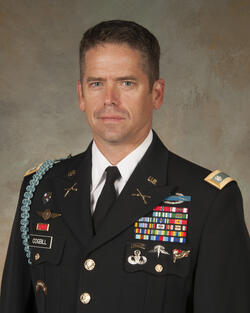Call for papers: Conference on the economics of ageing
The Asia Health Policy Program at Stanford’s Shorenstein Asia-Pacific Research Center, in collaboration with scholars from Stanford Health Policy's Center on Demography and Economics of Health and Aging, the Stanford Institute for Economic Policy Research, and the Next World Program, is soliciting papers for the third annual workshop on the economics of ageing titled Financing Longevity: The Economics of Pensions, Health Insurance, Long-term Care and Disability Insurance held at Stanford from April 24-25, 2017, and for a related special issue of the Journal of the Economics of Ageing.
The triumph of longevity can pose a challenge to the fiscal integrity of public and private pension systems and other social support programs disproportionately used by older adults. High-income countries offer lessons – frequently cautionary tales – for low- and middle-income countries about how to design social protection programs to be sustainable in the face of population ageing. Technological change and income inequality interact with population ageing to threaten the sustainability and perceived fairness of conventional financing for many social programs. Promoting longer working lives and savings for retirement are obvious policy priorities; but in many cases the fiscal challenges are even more acute for other social programs, such as insurance systems for medical care, long-term care, and disability. Reform of entitlement programs is also often politically difficult, further highlighting how important it is for developing countries putting in place comprehensive social security systems to take account of the macroeconomic implications of population ageing.
The objective of the workshop is to explore the economics of ageing from the perspective of sustainable financing for longer lives. The workshop will bring together researchers to present recent empirical and theoretical research on the economics of ageing with special (yet not exclusive) foci on the following topics:
- Public and private roles in savings and retirement security
- Living and working in an Age of Longevity: Lessons for Finance
- Defined benefit, defined contribution, and innovations in design of pension programs
- Intergenerational and equity implications of different financing mechanisms for pensions and social insurance
- The impact of population aging on health insurance financing
- Economic incentives of long-term care insurance and disability insurance systems
- Precautionary savings and social protection system generosity
- Elderly cognitive function and financial planning
- Evaluation of policies aimed at increasing health and productivity of older adults
- Population ageing and financing economic growth
- Tax policies’ implications for capital deepening and investment in human capital
- The relationship between population age structure and capital market returns
- Evidence on policies designed to address disparities – gender, ethnic/racial, inter-regional, urban/rural – in old-age support
- The political economy of reforming pension systems as well as health, long-term care and disability insurance programs
Submission for the workshop
Interested authors are invited to submit a 1-page abstract by Sept. 30, 2016, to Karen Eggleston at karene@stanford.edu. The authors of accepted abstracts will be notified by Oct. 15, 2016, and completed draft papers will be expected by April 1, 2017.
Economy-class travel and accommodation costs for one author of each accepted paper will be covered by the organizers.
Invited authors are expected to submit their paper to the Journal of the Economics of Ageing. A selection of these papers will (assuming successful completion of the review process) be published in a special issue.
Submission to the special issue
Authors (also those interested who are not attending the workshop) are invited to submit papers for the special issue in the Journal of the Economics of Ageing by Aug. 1, 2017. Submissions should be made online. Please select article type “SI Financing Longevity.”
About the Next World Program
The Next World Program is a joint initiative of Harvard University’s Program on the Global Demography of Aging, the WDA Forum, Stanford’s Asia Health Policy Program, and Fudan University’s Working Group on Comparative Ageing Societies. These institutions organize an annual workshop and a special issue in the Journal of the Economics of Ageing on an important economic theme related to ageing societies.
More information can be found in the PDF below.

 LTC John Cogbill
LTC John Cogbill
 Lt Col Scott Maytan, U.S. Air Force
Lt Col Scott Maytan, U.S. Air Force
 LTC John Chu, U.S. Army
LTC John Chu, U.S. Army
 Lt Col Ryan Blake, U.S. Air Force
Lt Col Ryan Blake, U.S. Air Force
 Lt Col Jose “Ed” Sumangil, U.S. Air Force
Lt Col Jose “Ed” Sumangil, U.S. Air Force







